What are intercostal muscles?
Let's take a minute to dive into what the intercostal muscles are and what they do (for anyone who wants to know).
Or, you can skip straight to our 'How to sleep with intercostal muscle strain' section. 👇
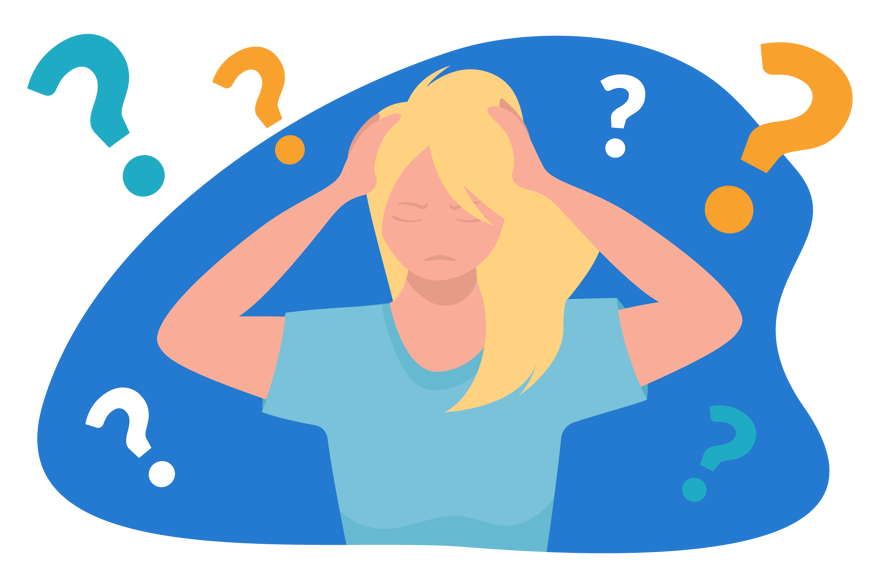
The intercostal muscles are tucked between your ribs.
They help your ribcage expand and contract. 🫁
This team of rib muscles comprises of three key players: the internal intercostal muscles, external intercostal muscles, and innermost intercostal muscles.
What is an intercostal muscle strain?
So, you know what intercostals are and what they do, but what is an intercostal muscle strain?
Simply put, it's a tear in the intercostal muscle. 😣
This can happen in varying degrees of severity.
These include:
- First Degree or mild strain: the intercostal muscle fibres are stretched, and a few may be torn.
- Second Degree or moderate strain: now we're talking about a good chunk of the torn muscle fibres.
- Third Degree or severe strain: this is the most severe since every muscle fibre is torn.
A doctor can help you understand your type of intercostal muscle strain and how to deal with it. 🧑⚕️
Now, let's take a look at how intercostal muscle strains happen.
Common causes of intercostal muscle strain
An intercostal muscle strain can have similar symptoms to more serious issues.
Therefore, it's important that you see a doctor if you are experiencing pain in the rib muscles to ensure you get the correct treatment. ✅
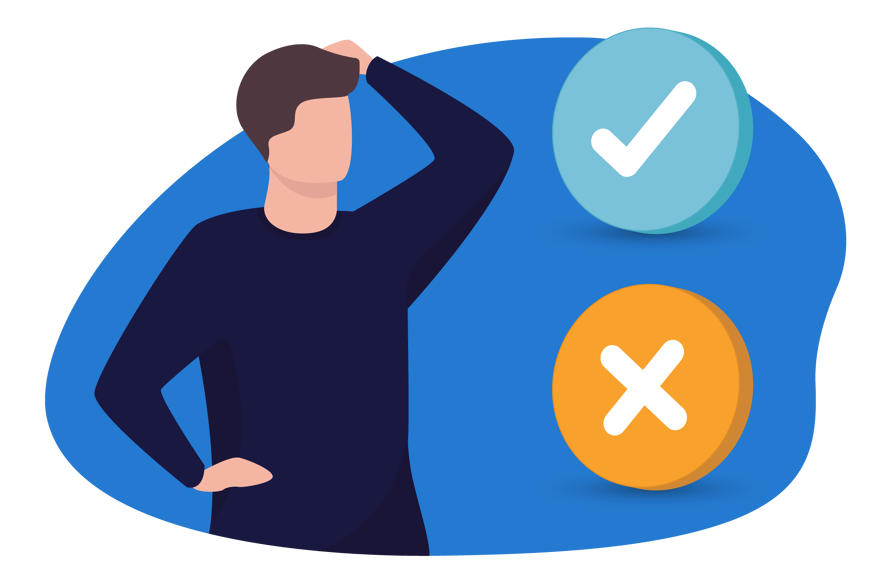
It's also, of course, helpful to know the most frequent causes of intercostal muscle injuries. 🤔
These include:
- One-time injuries or repetitive movements: This could be anything from a nasty cough to giving your ceiling a fresh coat of paint or even chopping wood.
- Sporting activities: Contact sports and activities that require intense upper body movements, like rugby, batting, pitching, weight lifting, or rowing, can cause intercostal muscle strains.
Now we know what intercostals are and what can cause a strain, let's get into what an intercostal muscle strain feels like. 👀
Symptoms of intercostal muscle strain
Recognising the feeling of an intercostal muscle strain can help you take appropriate action faster.
Common symptoms of intercostal muscle strain include:
- Localised pain: Sharp, piercing pain or soreness in your upper back and ribs, especially when you breathe deeply or cough.
- Tenderness and stiffness: Sensitivity to touch, muscle tension, and upper back pain.
- Swelling: Though less common, puffy spots may appear after an intercostal muscle tear.
- Muscle spasms: Involuntary contractions or sudden tightening of the muscles.
Knowing the symptoms of a pulled rib muscle helps, but you should still head to the doctors for professional advice and treatment options (especially if you are experiencing chest pain). 👍
Now we know the symptoms, it's time to understand how to sleep with intercostal muscle strain.
How to sleep with intercostal muscle strain
Sleep is essential and has even been linked to accelerated recovery [1], especially for sports-related muscle strains.
Most healthy adults should sleep at least 7 hours every night [2]. 😴
Unfortunately, the sharp pangs of pain associated with intercostal muscle strain can make settling down for a restful night's sleep and even breathing an uphill battle.
However, there are practical steps you can take to navigate this discomfort and achieve better quality sleep.
So, without further ado, let's dive into how you can sleep better with intercostal muscle strain. 👇
What are the best sleeping positions when you have intercostal muscle strain (or pulled rib muscles)?
Many people struggle to sleep when they have pulled rib muscles.
But the correct spinal alignment can significantly ease the strain on your intercostal muscles, mitigating the pain that's keeping you awake.
Let's get into it!
Sleeping on your back with intercostal muscle strain
Ideally, you should sleep on your back.
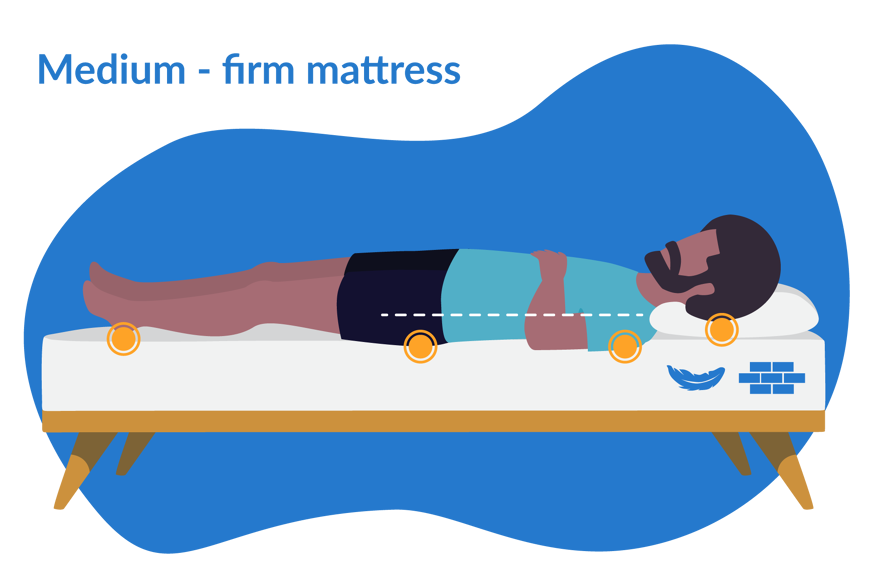
A good mattress for back sleepers is usually medium-firm and will go a long way in helping you sleep, but it's not the only thing that matters.
Using a knee pillow under your knees can also help improve your spinal alignment, prevent you from twisting, and reduce upper and lower back pain.
But most people actually find sleeping with their upper body slightly elevated relieves pain and makes breathing a little easier. 🌬️
This semi-horizontal position puts less pressure on your chest than lying flat on your back.
If you have a reclining mattress, try it in a semi-horizontal position.
Of course, we know that most people don't have a reclining bed or mattress lying around.
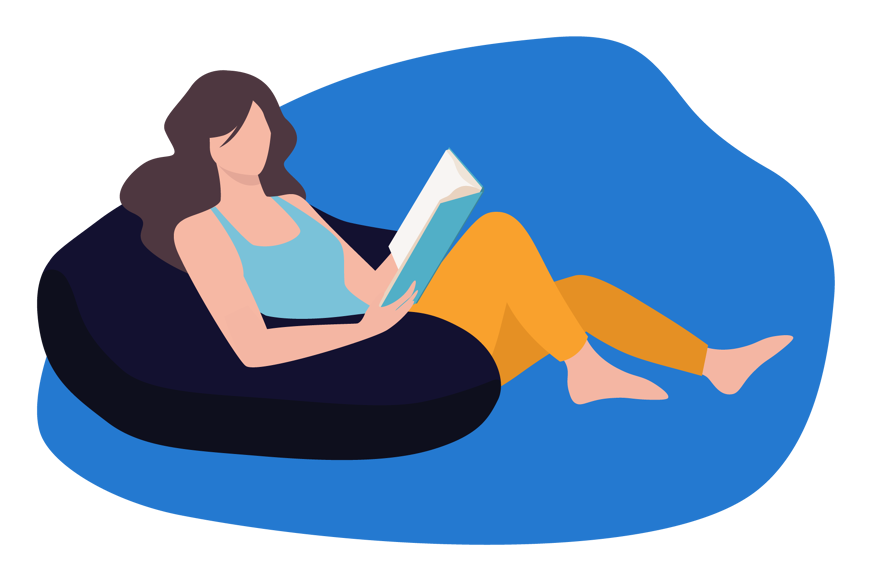
Luckily you can also use a body pillow, v-shaped pillow, or wedge pillow to help elevate your upper body instead.
The Kally Body Pillow is relatively affordable and generally comfortable if you want to try sleeping with your upper body or legs elevated.
Sleeping on your side with intercostal muscle strain
If your pain is only on one side, you may sleep best on the opposite side.
So the injured muscles would be facing up, and the side with the uninjured rib muscles would be against your mattress. 💤
However, others may find this sleeping position causes their torso to twist (especially if they have a firmer mattress).
Fortunately, if your mattress is slightly too-firm, you can add a mattress topper for a softer feel that is more accommodating for your hips and shoulders.
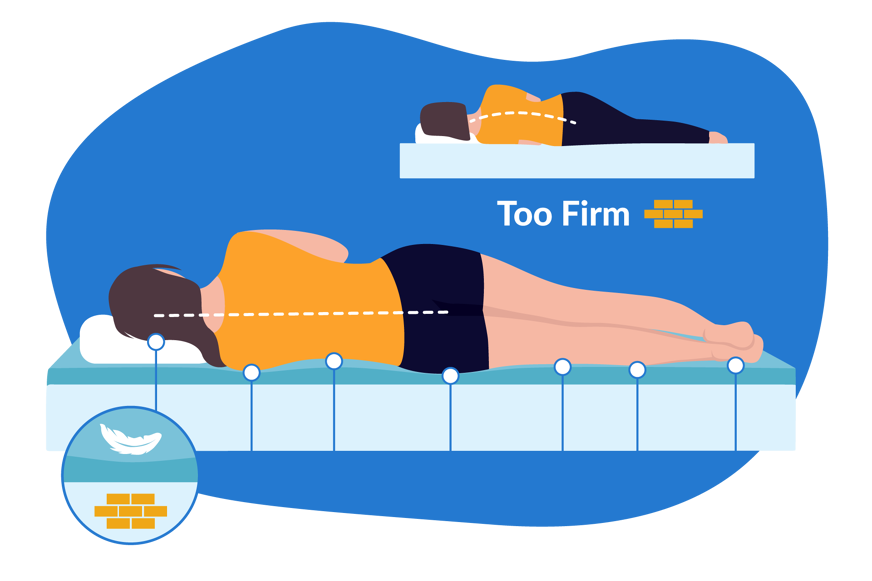
If sleeping on your side causes pain or discomfort, it's best to switch to sleeping on your back, ideally with your upper body slightly elevated. 👍
Relieving intercostal muscle pain
If you are experiencing high pain levels in your rib muscles or have broken ribs, your doctor may prescribe stronger pain medications or even steroids.
However, in other cases, your doctor may suggest using at-home remedies to relieve your rib pain.
So let's take a look at what you can do at home. 🏡
Using over-the-counter painkillers to relieve intercostal muscle pain
Over-the-counter painkillers can help to take the edge off, allowing you to relax and sleep better.
Paracetamol and anti-inflammatory pain medications like ibuprofen and aspirin work well for intercostal muscle strain. 😀
These pain relievers are very easy to find, with most available in local shops, supermarkets, and pharmacies.
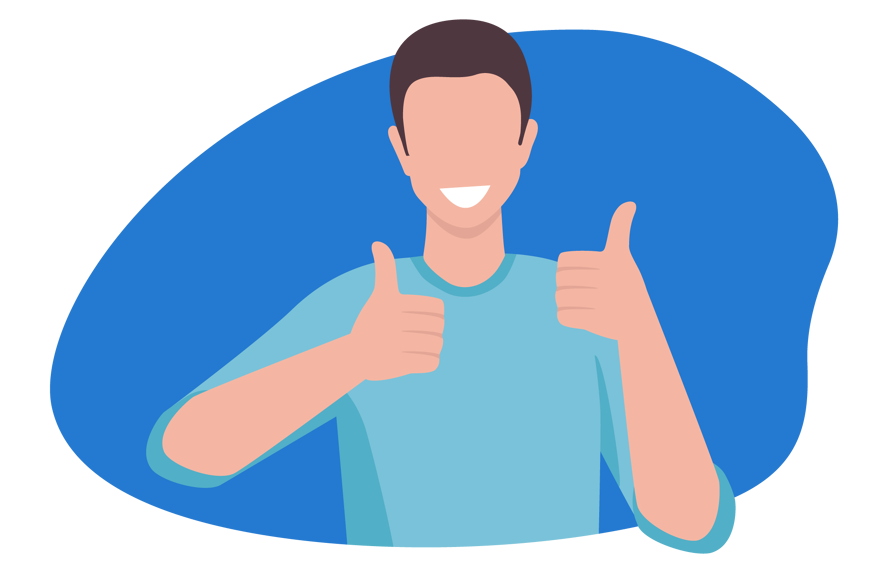
Alternatively, you can also find naproxen at most pharmacies if you're an adult.💊
However, bear in mind that naproxen isn't a one-size-fits-all solution.
The NHS website provides more information on who shouldn't use naproxen [3]. ❌
It's also worth chatting with your doctor before taking painkillers to check if it's right for you, especially if you have a lot of rib muscle pain.
Disclaimer: We're not medical professionals. Please check with your GP or other health professional before taking over-the-counter or prescription medication.
Using ice or heat therapy to relieve intercostal muscle pain
You'll want to swap from ice to heat therapy, depending on what stage of recovery you are in.
In the immediate days following the strain or injury, ice will be your best friend. 🧊
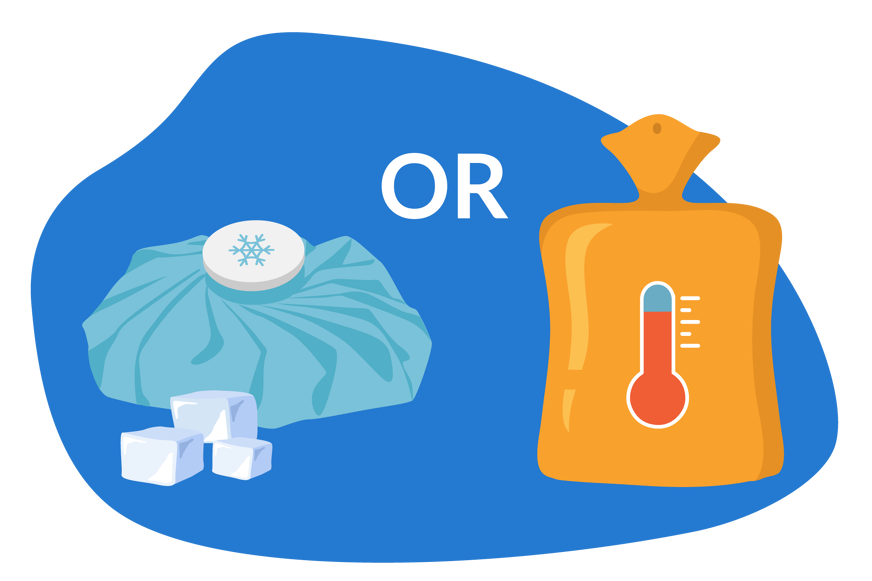
You can apply an ice pack to the injured area in 10- to 20-minute sessions to reduce swelling and curb muscle pain in the ribs.
Wrapping your ice pack (or frozen peas) in a towel will make this more comfortable.
After the initial few days have passed, it's recommended that you switch gears and opt for heat therapy. 🔥
You can take a warm bath or use heating pads to relieve lingering pain, relax your tight muscles, and promote the healing process of your intercostal muscles.
Preparing to sleep with intercostal muscle pain
Many of us struggle to fall asleep fast, especially if we're in pain or generally uncomfortable.
But, of course, that doesn't mean it's impossible.
There are plenty of ways to encourage sleep, even if you're struggling with a pulled rib muscle. 👇
Light stretching
Before we delve into how you can stretch your way into more comfortable sleeping, it's essential to state the obvious.
You should seek the advice of a medical professional before trying new stretches, particularly when you have an intercostal muscle strain.
Overdoing your stretches may further strain your intercostal muscles, the exact opposite of what you need.
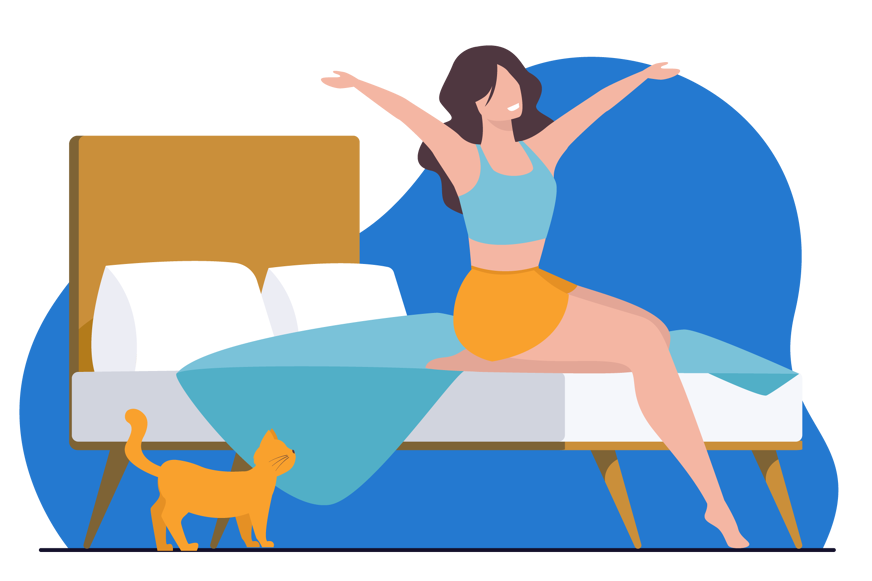
But adding low-intensity overhead stretches to your routine could make a world of difference. 🤸♀️
So take it slow and steady, and always seek advice from your healthcare provider.
Gentle breathing exercises
Much like stretches, you must seek advice from your doctor before trying breathing exercises (even gentle ones).
The intercostal muscles are responsible for helping our ribs expand and contract, allowing us to breathe in and out. 🫁
In most cases, gentle breathing exercises can be part of an active recovery process, promoting blood flow and encouraging faster healing.
Doing gentle breathing exercises before bed, especially taking slow, rhythmic breaths, can help reduce feelings of pain and stress [4].
Just make sure you consult with your doctor before getting stuck in. 🧑⚕️
Meditation
If you've never meditated before, let us give you a quick overview of what it is. 📚
Meditation, in its essence, is about focusing your attention on the present moment.
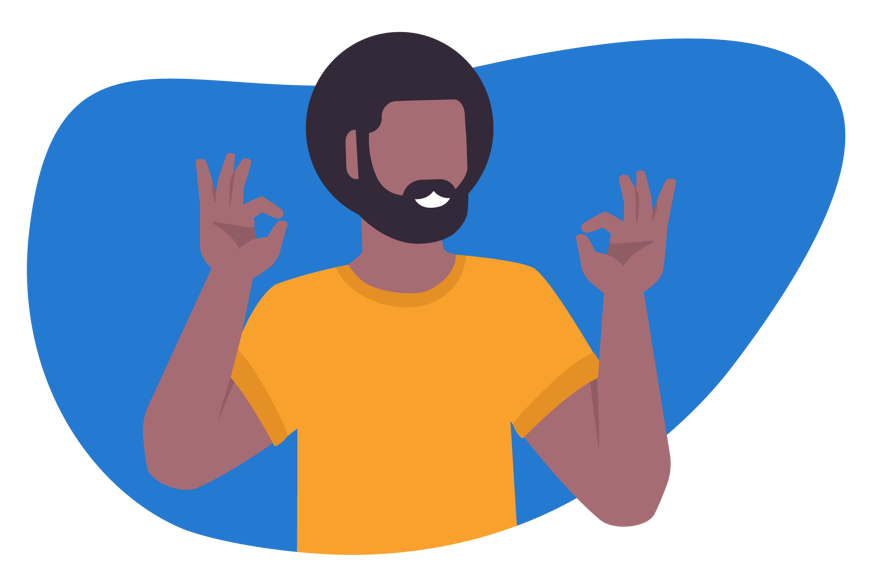
This usually involves concentration, clearing your mind and deep breathing (though with intercostal muscle strain, let's just say the 'deep' in deep breathing should be taken lightly). 😅
Meditation for sleep is catching on fast and has been linked to enhanced relaxation and reduced feelings of pain.
Meditating before bed not only helps to reduce stress and anxiety levels but also may improve the quality of your sleep, allowing you to fall asleep and reach the stage of deep sleep faster. This practice helps to relax the body and mind, giving you much-needed inner peace. Various studies also found a link between meditation and chronic pain relief.

Romsy Barrios [5]
Medical Doctor
What to do if you have an intercostal muscle strain
If you're feeling a nagging muscular rib pain, don't ignore it.
While it may be an intercostal muscle strain, it could also be a sign of a more serious condition (like bronchitis, a lung condition, or fractured ribs). 🚨
It's best to seek advice from a healthcare professional if you have rib muscle pain.
Diagnosis is typically straightforward, involving some questions and a physical examination.
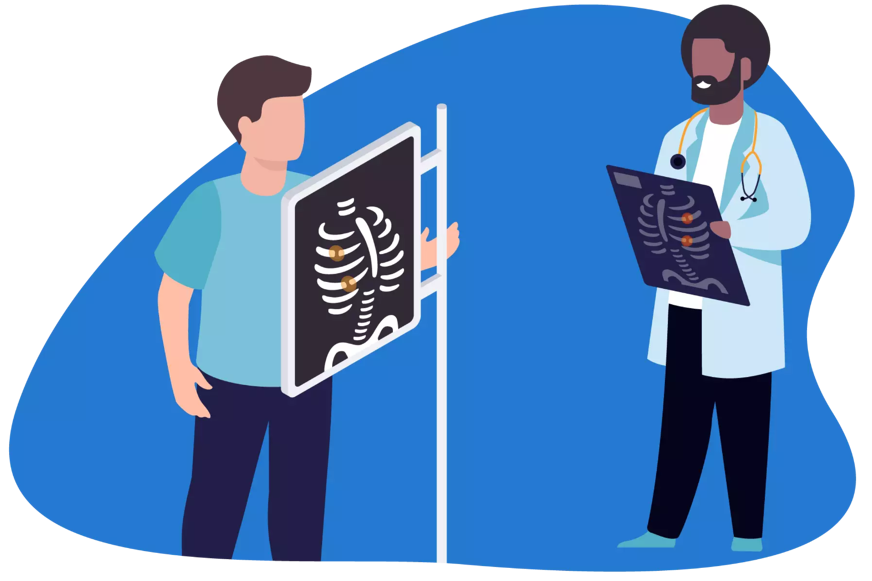
In rare cases, additional tests like X-rays or MRIs may be ordered. 🔎
And in severe cases, physical therapy or even surgery may be advised by your doctor.
However, for most, rest, gentle movement, cold compresses, heat therapy, and over-the-counter painkillers will aid recovery without the need for medical intervention.
How long does it take for intercostal muscle strains to heal?
Typically, intercostal muscle strains (pulled rib muscle) will heal within 4 to 5 weeks.
But, of course, this healing timeline will depend on the severity of your strain and how well your recovery goes.

If the strain does not feel like it's healing or the muscular rib pain is worsening, it's time to call 111 or make an appointment with your GP.
Can you sleep with intercostal muscle strain?
Sleeping with intercostal muscle strain can be challenging, but it's not impossible.
Taking pain relieving medication, following your doctor's advice, and sleeping with your upper body propped up will ensure you get the best night's sleep possible.
If you still can't sleep, consult your doctor.
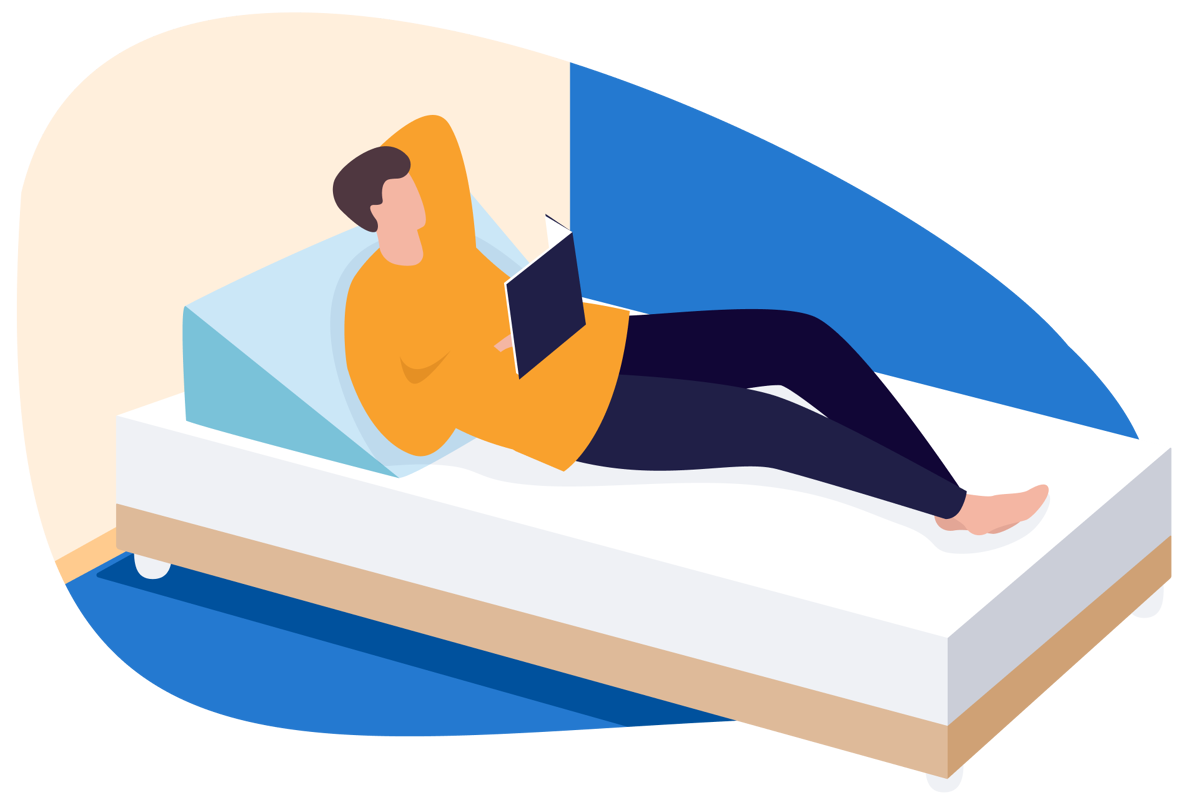





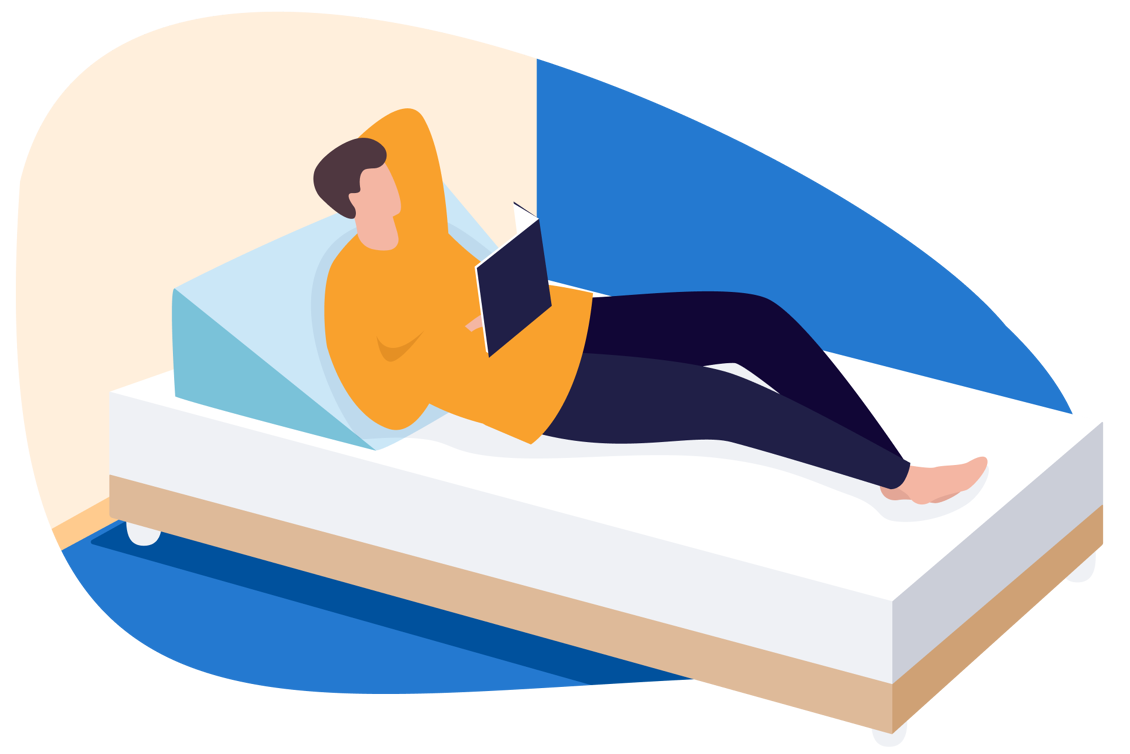
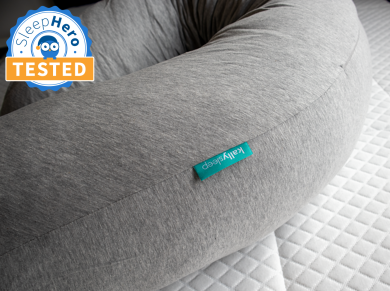

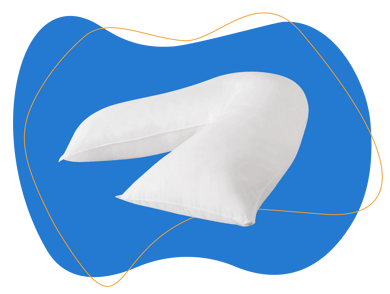

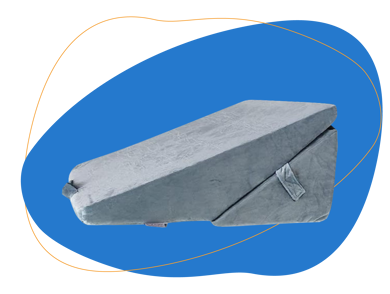

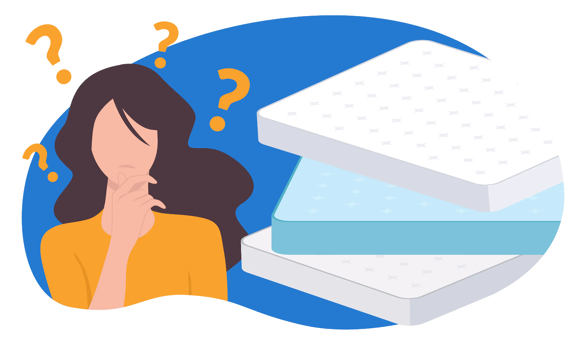
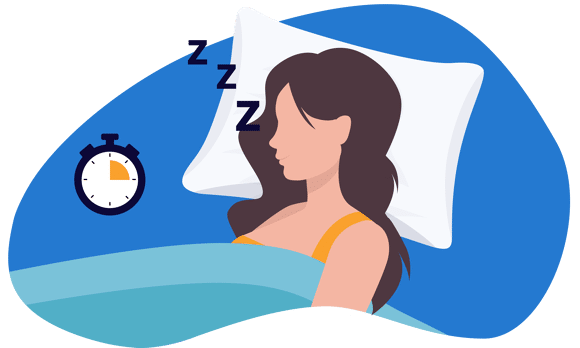
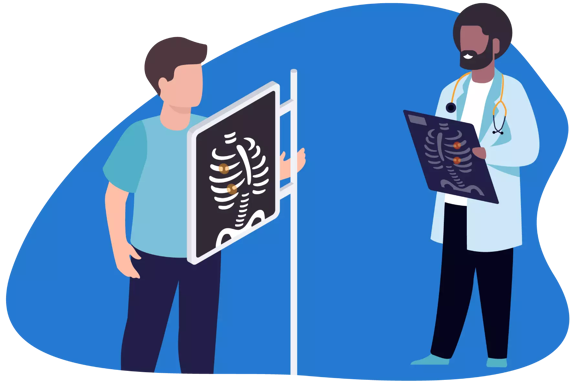


Alternatively, message us directly via the Contact Us page.